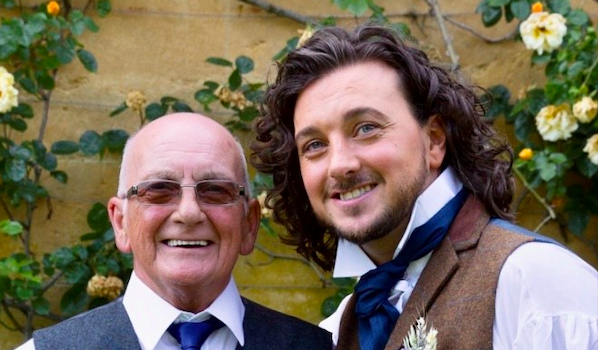Peter Sheward and his father, Peter Sheward Snr, who died of prostate cancer in 2017.
(Supplied)
Father’s Day will always be special for Peter Sheward-Himpson, a gay man who never dreamed he could have a child. But it is also a reminder of the father he’s lost, and the grandfather his son will never have.
Peter tragically lost his father to prostate cancer, a disease which should have been caught by a simple blood test — but wasn’t until it was too late.
Now, as he reflects on the relationship he’s lost, he is confronting the toxic masculinity which makes straight men so unwilling to address their prostate health, and urging other gay men to help fight the stigma.
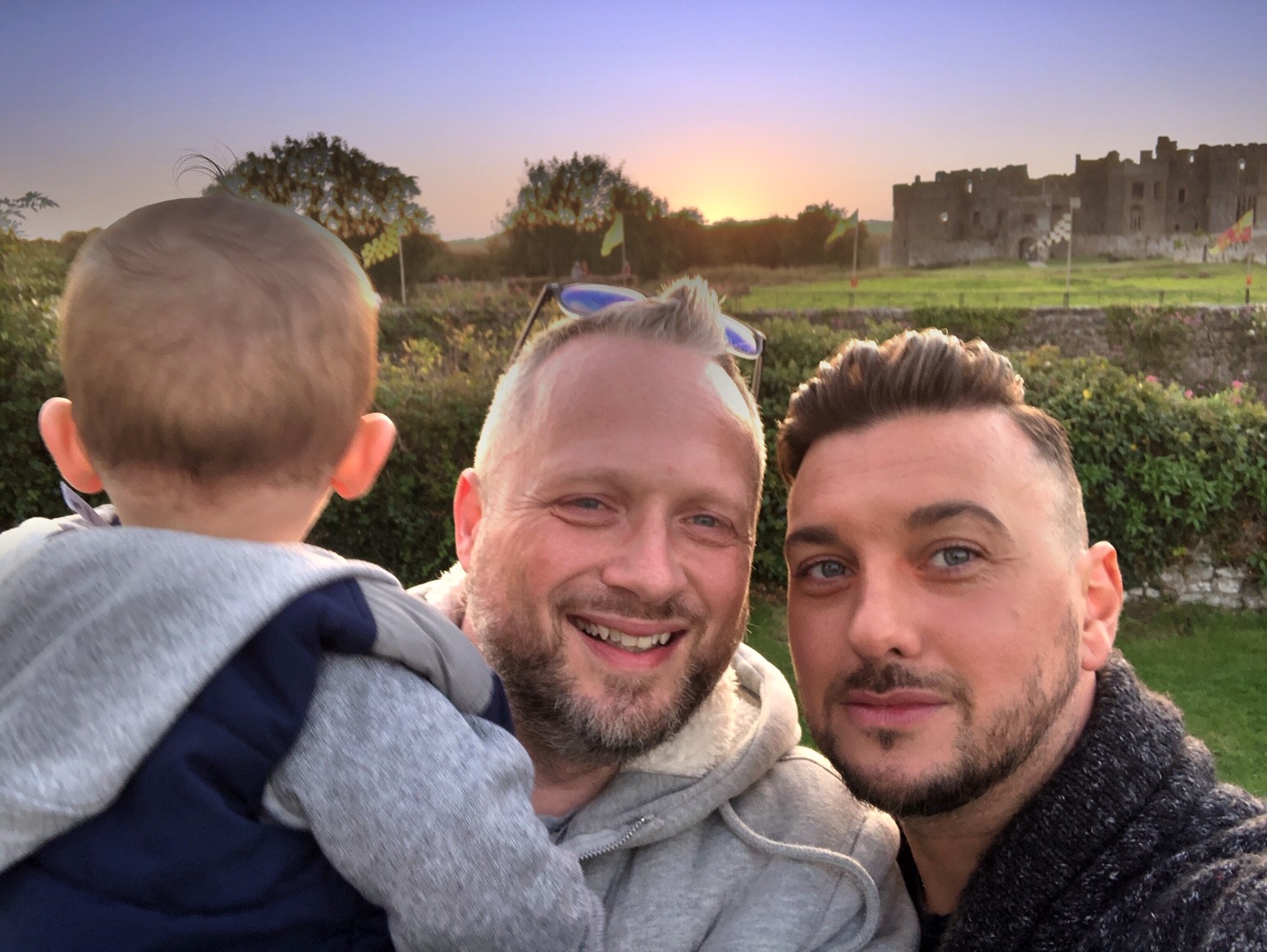
All the early warning signs were there: bladder problems, blood in semen and urine. But Peter’s father couldn’t bear to think about prostate cancer.
“He spoke to men down the pub who misinformed him. He was scared. And it was that fear that prevented him from getting treatment at first,” Peter told PinkNews.
“It was all those lies that other men perpetuated, and they frightened him with their ideas of what could go wrong. When I’ve spoken to men about prostate cancer, you hear this, ‘Oh, you’ll have to have your prostate out, your d**k won’t work, you’ll lose your libido’.
“These are very much aspects of straight men’s fears, of having something up your bottom and losing that sense of being a bloke.”
Peter begged his father to get checked but he refused as he was worried about having a colostomy bag. And as he tried to ignore the problem, the cancer grew.
He was finally prompted to act when a doctor warned him, bluntly, that he would die if he didn’t get surgery immediately.
He agreed, the cancer was removed, and Peter’s father found that confronting the problem wasn’t nearly as bad as he’d expected. In the months that followed he appeared to have made a full recovery and was able to watch his son walk down the aisle with pride.
“He was the best man at my wedding. He was in wonderful spirits,” Peter remembers. “And then six months later to the day, he passed away.”
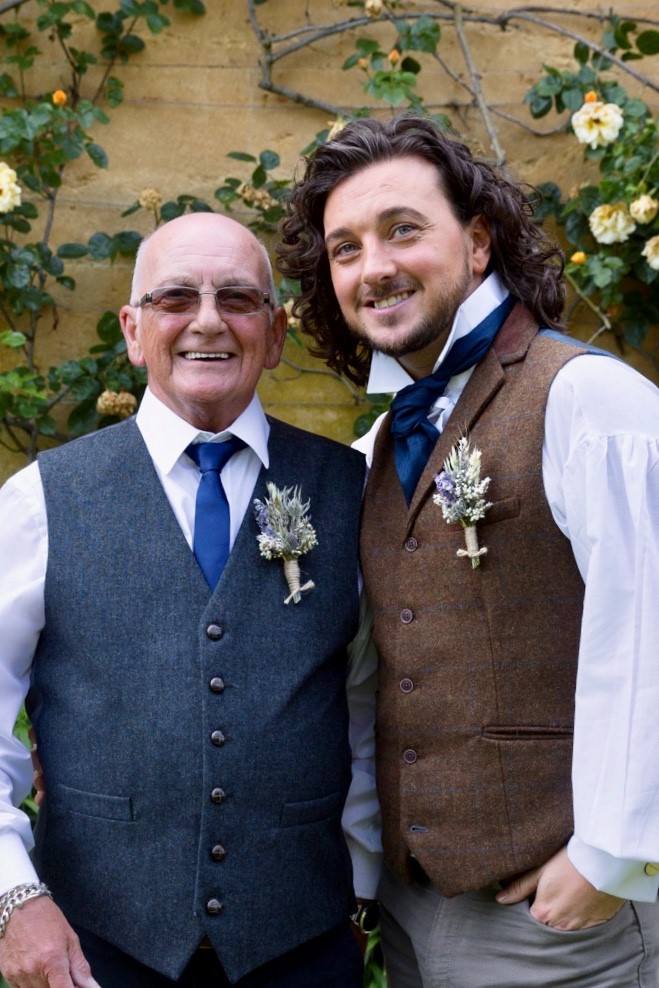
Growing up, Peter didn’t have the best relationship with his father. He assumed that he would never understand his sexuality, and they were always “at loggerheads”.
“We would fight bitterly and it was because I was hiding who I was. He in essence was an ‘old school’ man, so I never could really tell him who I was,” he said. “It was difficult. It was only later on when I found the courage to come out that we grew close.”
When the truth finally came out one drunken evening, Peter’s father shocked him with the quiet words: “I don’t get it. I don’t understand it. I probably never will. But you are my son, and I love you.”
“I never, ever thought those words would come out of that man’s mouth,” Peter said. “All those years I’d hidden who I was. And actually, if I’d just reached out, maybe, just maybe, we could have had that stronger relationship.”
It’s something he thought often as he watched his father battle through the final months of his illness. Shortly after Peter’s wedding, the family received the devastating news that the cancer had returned and spread to the heart and lungs. It progressed quickly, and within six months he was dead, aged 73.
“If he had not listened to misinformation, if he had got it checked out sooner, if he had the blood tests at a sensible age, he could have had it rectified earlier,” Peter regrets.
It is not lost on him that much of the stigma surrounding the disease is rooted in homophobia and the fear of emasculation that often goes with it.
“My father never said this but I think there’s that fear of, you know, maybe there’ll be a finger up the bum, some doctor being rather intrusive, and, ‘Oh you don’t want them down there’,” Peter said.
“But all it is is just a tiny little needle, you get some blood taken and you can save your own life. That’s all it is. It’s so simple, so easy to do.”
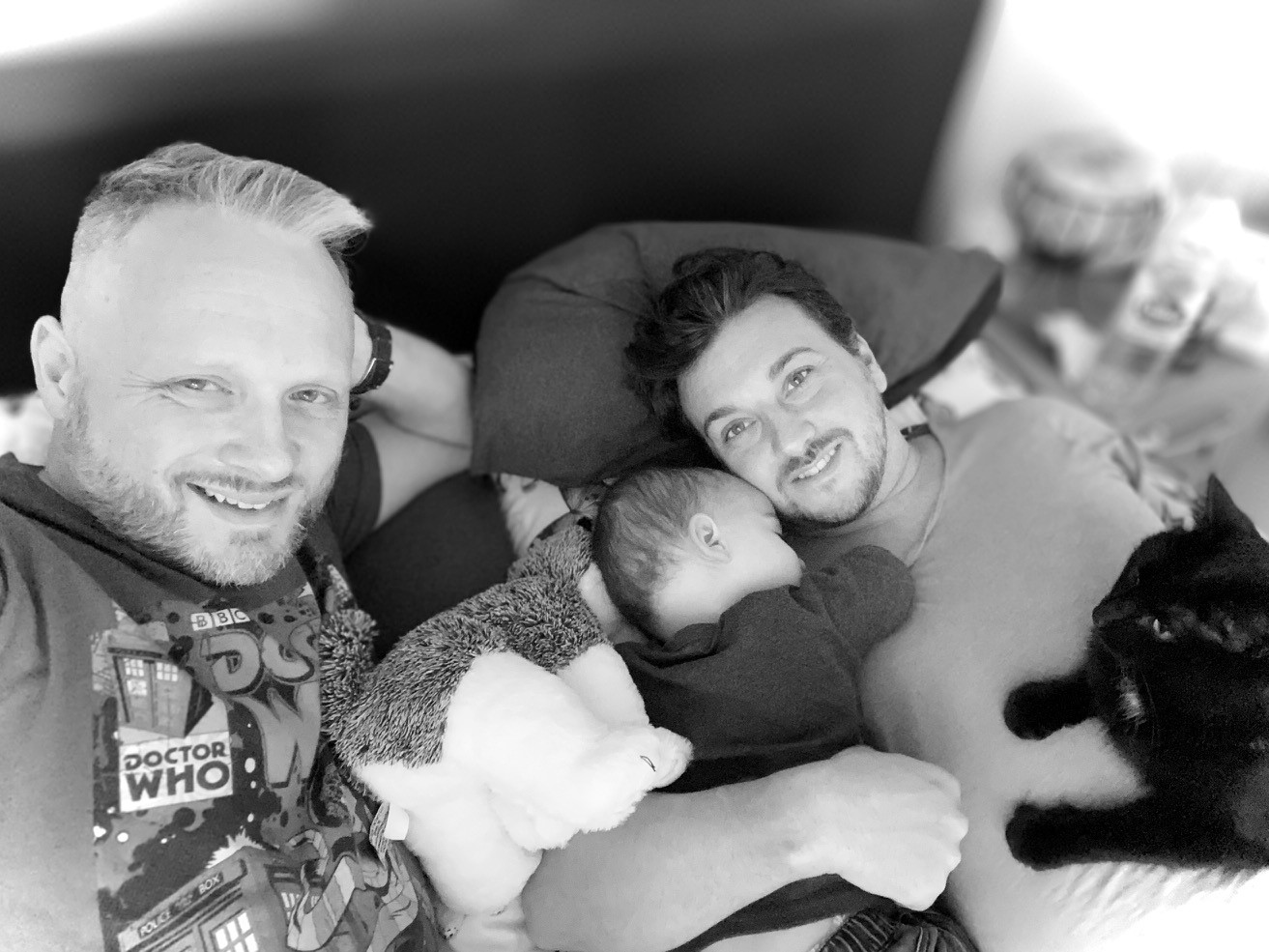
Inspired by his father’s experience, Peter is now supporting Prostate Cancer UK’s campaign to help more men address their prostate health.
He encourages gay and bisexual men to lead these conversations, if they can, and dispel the fears their straight male relatives may have around prostate examinations.
“Even if you’re not out to your father, talking about things like prostate cancer could open that kind of conversation about some of the worries around it,” he said.
“And as your start to educate your father or uncle about prostate cancer, you can start educating them about LGBT+ issues as well and tell them that these things are nothing to be scared about.
“Don’t waste time. Get talking, get tested, and have faith that your family will love you. Don’t have a loss like I did. My son will never know his grandfather, because I wasted time not having that relationship earlier on with my dad.”
This Father’s Day, Prostate Cancer UK has created an online space for dedications to dads and father figures as they shine a light on those affected by the disease.
In Peter’s tribute, he has encompassed all he wishes he could say to the father he has lost.
“You were the first man to hold me and I was the last man to hold you as you died in my arms. Now I’m a father myself and I wish you could be here to meet your grandson. You would love him, Dad.”
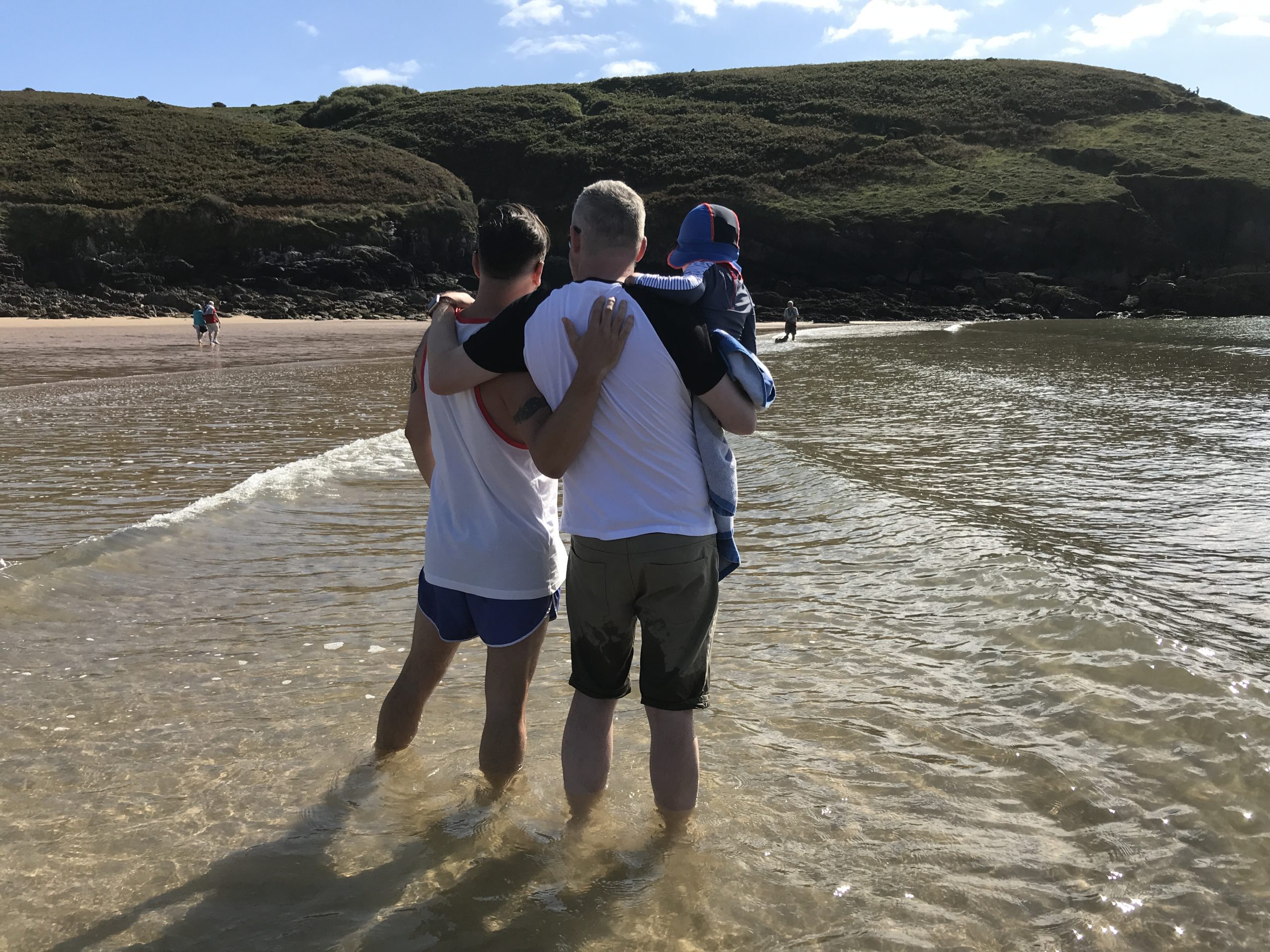
Prostate cancer is the UK’s most most commonly diagnosed cancer, and there are currently around 400,000 men living with and after the disease in the country.
Anyone with concerns about prostate cancer can contact Prostate Cancer UK’s Specialist Nurses in confidence on 0800 074 8383 or online via the Live Chat instant messaging service. The Specialist Nurse phone service is free to landlines and open from 9am to 6pm Monday to Friday, and 10am to 8pm on Wednesdays.
